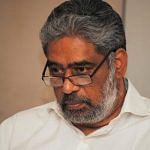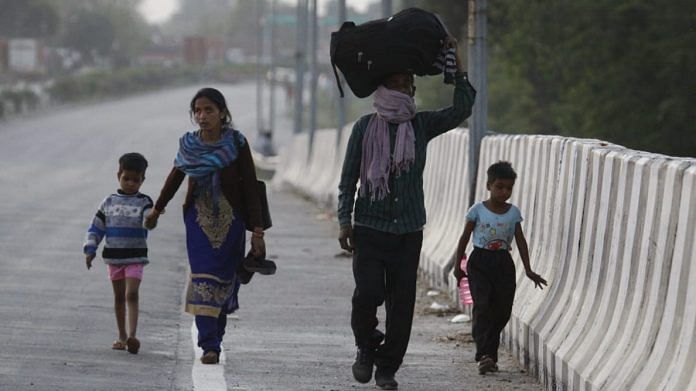Raja Man dala: The art of China’s legalpolitik
dala: The art of China’s legalpolitik
C. Raja Mohan | Director, Institute of South Asian Studies, National University of Singapore
The Indian Express
The US Senate has moved a resolution, inquiring into the origins of coronavirus in China’s Wuhan, quantifying the damage inflicted on the rest of the world by the country and designing a mechanism of reparations from Beijing. Mohan argues that while it may seem that in the international arena, such a legal route is useless, “winning the legal argument, China has learnt from the history of great power relations, is very much part of great power jousting.” He terms this as “legalpolitick”. He adds that in this case, China mounted “a massive propaganda offensive …’’ with legal cases accusing the US government’s agencies of “covering up the origin of the coronavirus’’. For China, it is no longer about defending itself against international narrative, instead, it is about creating a new narrative for itself. Mohan says that India can “learn a trick or two from Beijing on how to make international law the keystone of India’s diplomacy, especially in the multilateral domain.”
Zaidi proposes that in the fight against coronavirus, “India must uphold the principle of truth and responsibility, starting at the highest levels.” Giving the example of Mahatma Gandhi’s call for satyagraha, she states, “We use his tools, demonstrations, fasts, marches, but we shun his core principles.” Noting Kerala, South Korea and Cuba’s response to the pandemic, she adds, “The simple truth is, systems work best when they work for all.” It is time to surrender caste, class and religious bias if we want to survive this pandemic, Zaidi adds.
 How to sustain a long lockdown
How to sustain a long lockdown
Neelanjan Sircar | Assistant professor, Ashoka University, and visiting senior fellow, Centre for Policy Research
Hindustan Times
Commenting on the nationwide lockdown and the migrants’ exodus, Sircar says, “The problem lies not in the earnestness with which the government has acted to combat the crisis, but with the advice it is being given.” Referring to the collective action problem — which he defines as “each person must pay a certain cost (restricting essential items, no outside interaction) so that society, as a whole, can benefit in the future” — Sircar expands on the unsustainability of the nationwide lockdown as it ignores the needs of the poorest of the poor. He ends with a suggestion, to not look at what China and US have done or not done because “India needs a solution that fits its political economy context” by providing “significant support materially and in sustenance to the most vulnerable people”, avoid big crowds, “standardise relief efforts across India” to avoid mass movements to states with better responses.
 Getting India back to work: Developing countries need different strategies than nations with fully functioning welfare states
Getting India back to work: Developing countries need different strategies than nations with fully functioning welfare states
Ruchir Sharma | Author of Breakout Nations: In Pursuit of the Next Economic Miracles and The Rise and Fall of Nations: Forces of Change in a Post-Crisis World
The Times of India
During a pandemic, countries are often made to choose between “public and economic health”, but India needs to react differently than the US or Europe because there, “laid off workers can file immediately for unemployment benefits, and some European governments are now funding companies to keep employees on the payroll through the pandemic,” writes Sharma. He argues, “There is no one-size-fits-all response to a global pandemic.” Suggesting alternatives once the nationwide lockdown expires on 14 April, he advises “loosening restrictions in less-hard hit regions, and among the young, healthy, least vulnerable populations.”
 Coronavirus will reshape the future of work
Coronavirus will reshape the future of work
C. Gopinath | The writer is a professor at Suffolk University, Boston
The Hindu Business Line
Gopinath writes on how the spread of the coronavirus is changing the workplace. Many have been working from home to prevent getting infected or to prevent spreading the disease. “Companies will also realise it is convenient and productive for many more people to work from home” as “people don’t waste time travelling, work productivity will go up”, explains Gopinath. He argues that “the trend towards urbanisation will be reversed, as people will not see the need to congregate in close proximity for work or pleasure. ”
 We could tap foreign funds for an Indian ‘Marshall Plan’
We could tap foreign funds for an Indian ‘Marshall Plan’
Narayan Ramachandran | Narayan Ramachandran is chairman, InKlude Labs
Mint
Ramachandran comments on the economic impact of the coronavirus pandemic and compares it to the Great Depression, which began in 1929. He argues that “we need a fiscal push for infrastructure modernisation on the massive scale it took to rebuild Europe after World War II”. He says, “The hope is that post-pandemic growth and reconstruction will offer a path forward in the same way that war mobilisation, post-war investment in reconstruction and post-war global institutions created growth and prosperity around the world.” He suggests that in India the “government-guaranteed special purpose vehicle that is equity-funded by sovereign and pension funds around the world and leveraged by development capital from Japan” can be used to create such infrastructure push.
 Unemployment rate during lockdown: Just like measuring water in ocean
Unemployment rate during lockdown: Just like measuring water in ocean
Mahesh Vyas | CEO of Centre for Monitoring Indian Economy
Business Standard
Vyas comments on the unemployment in India during the lockdown. He says that technically, no one is actively looking for a job, which is a key to the definition of unemployment, so technically, unemployment is zero. “The concept of the unemployment rate was developed in response to a situation where there were people who were looking for work but were unable to find any” and “it measures the degree to which a mismatch exists between jobs on offer and jobs on-demand”, explains Vyas. He argues that in such scenarios, one should look at labour force participation, which is the percentage of people employed in the total working-age population.
 Toward a coherent strategy for Covid-19
Toward a coherent strategy for Covid-19
John B. Taylor | John Brian Taylor is the Mary and Robert Raymond Professor of Economics at Stanford University
Business Standard
Taylor comments on the impact of the coronavirus pandemic on the US economy. He argues that the US is lacking an economic strategy which is essential in such circumstances. A strategy “must offer specific short and long-term policies to confront that problem, and it must explain clearly how those measures will achieve their intended ends”, explains Taylor. He argues that a crisis “creates an opportunity for regulatory reform” and the “US strategy could seek to repeal – or at least suspend — many of the rules that hamper growth, while also placing a moratorium on new regulations that risk undercutting employment.” He gives the example of “Merchant Marine Act”, which restricts the transportation of goods between US ports by requiring that they are carried on American-made and -operated ships, and argues that acts could be repelled as part of the economic strategy.
Today’s Editorials
The Hindu: The lockdown, which was meant to address the public health crisis in India, has transformed itself into a humanitarian crisis for the poor in India, writes Hindu. The belated guidelines and steps issued by the Home Ministry to stop the migrants can only work if implemented in a humane manner. There was enough time for the government to be prepared for a better approach to fight coronavirus, writes Hindu.
The Indian Express: The daily notes that the war on Covid-19 is infringing on citizen’s right to privacy without adding significantly to the effort. The data about the foreign travellers’ health status is being shared publicly to curb the pandemic. It says that the information is irrelevant to the efficiency of social distancing, and sharing it outside the community of doctors, researchers and administrators are irresponsible and callous.
The Times of India: The Centre and states should put heads together to prepare a post-lockdown plan. Identifying vulnerable districts, setting up facilities for isolating elderly citizens, firming up disease surveillance teams and protocols to respond to localised outbreaks, and ramping up testing around disease clusters can offer a minimally disruptive path, suggests TOI. This approach can allow cities and industrial pockets to get back on their legs in quick times, it writes.
With inputs from Unnati Sharma




 The hunt for a cure begins with telling the truth
The hunt for a cure begins with telling the truth